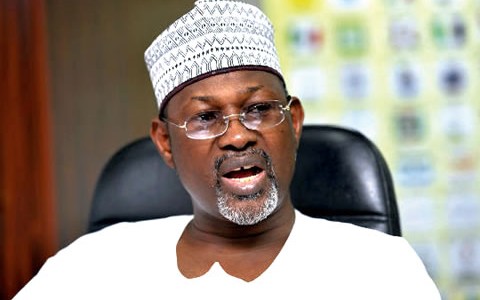The Independent National Electoral Commission (INEC) has been told by a Federal High Court sitting in Abuja that it has no powers to deregister parties except in accordance with the provisions of the 1999 Constitution.
This ruling was given on Monday by Justice Gabriel Kolawole while determining a suit brought before him by Fresh Democratic Party and its presidential candidate in the 2011 General Elections, Rev. Chris Okotie, protesting the de-registration of political parties, which they were one of, by the electoral umpire.
The plaintiffs had through their counsel, Fred Agbaje asked for a declaration that section 78 (7) (ii) of the Electoral Act, 2010 is unconstitutional, invalid, null and void to the extent that it offends the provisions of section 40 and 221-229 of the 1999 Constitution.
The plaintiffs also asked the court to make a declaration that INEC cannot deregister the party except in accordance with the provisions of the 1999 Constitution.
They further asked the court to declare that the purported reliance on section 78 (7) (ii) of the Electoral Act 2010, as amended, by INEC in deregistering FDP without first hearing the political party violated the provisions of sections 36, 38 and 40, as well as sections 221-222 of the 1999 Constitution, and paragraph 15 of the 3rd schedule (part 10 of the Constitution) among others.
In his judgment, Justice Kolawole held that the concept of deregistration of political parties is strange to the 1999 Constitution.
He added that the criteria by which the National Assembly delimited deregistration to failure to win seat in state and National Assembly elections appears like nothing but legislative arbitrariness, since INEC has powers to conduct other elections.
According to him, “INEC would not have lost anything by issuing the 1st plaintiff (FDP) with a query to enhance the integrity of its decision.
“The statutory powers conferred on the 1st defendant (INEC) can be described as ministerial but when such power concerns deregistration of a political party it becomes a quasi-judicial power because after registration a political party becomes a legal entity and acquires a legal right and a decision to take away such legal rights cannot be taken without according the political party a hearing.
“Section 78 (7) (ii) of the Electoral Act 2010, as amended, is hereby declared null and void, in so far as the 1st plaintiff (FDP) was not heard before the decision was taken, the said decision is null and void.
“The 1st defendant’s (INEC’s) decision dated December 6, 2012 is declared invalid and is set aside.”
However, the court did not grant the plaintiffs’ prayer that the court should order the defendants to pay them the sum of N10m as compensatory damages.
Meanwhile, with about twenty four hours to legal deadline for its registration, the African Progressive Congress has again warned the Independent National Electoral Commission not to register the All Progressives Congress as the legal consequences can create electoral anarchy if eventually the association won its case against the commission.
The National Legal Adviser of the African Progressive Congress, Barrister Nnadi Kinglesy gave this warning in reaction to reports and threats of violence by the rival APC, stating that the association‘s case against INEC is very strong and that ongoing legal hearing is already confirming the merit of the substantive suit against the commission.
“We are contesting INEC‘s refusal to register us even when we fulfill the requirements of the law. The ground INEC relied on to stop our registration is so weak because we gave addresses of our national officers as demanded by the law. We took them to court within the stipulated date.
“The other APC has been trying to stop the court from hearing our case but they have failed as the court has ruled in our favour’s we are about to commence the real hearing. If they are convinced we don’t have good case, why is the rival APC running around to stop the hearing of the substantive suit,” the legal adviser said.
He advised INEC to obey the rule of law which stipulates that a subjudiced matter should not be tampered with until the court has finally determine the matter before it, adding “we are calling on INEC to listen to wise counsel and not allow itself to be stampeded into committing an error that may spell doom for the electoral process.
“If the report is real and not mere propaganda, we urge INEC to stick to its advice for the other APC to look for another name. We got to INEC before them and we fulfilled the requirements. If INEC registered them and by 2014, the court ruled in our favour, can you imagine the crisis the nation will have at hand ?” he asked.
It is recalled that two court cases are ongoing on the acronym. The cases were filed separately by two political associations, the African Progressive Congress and the All African Progressive Congress of Nigeria.

